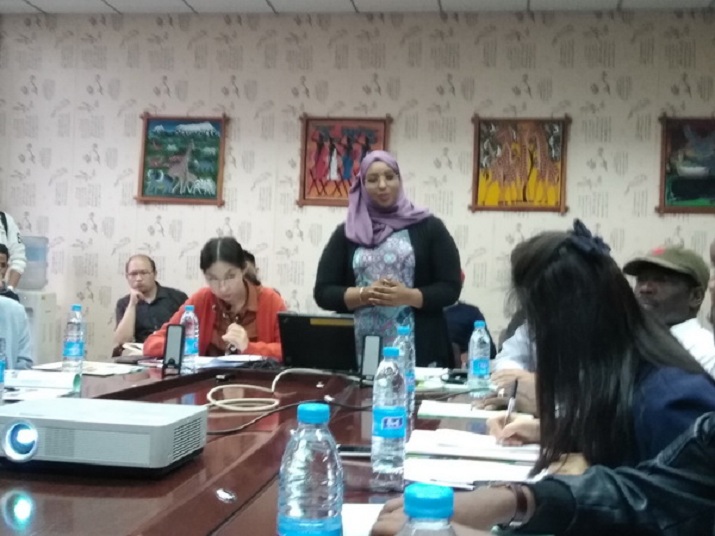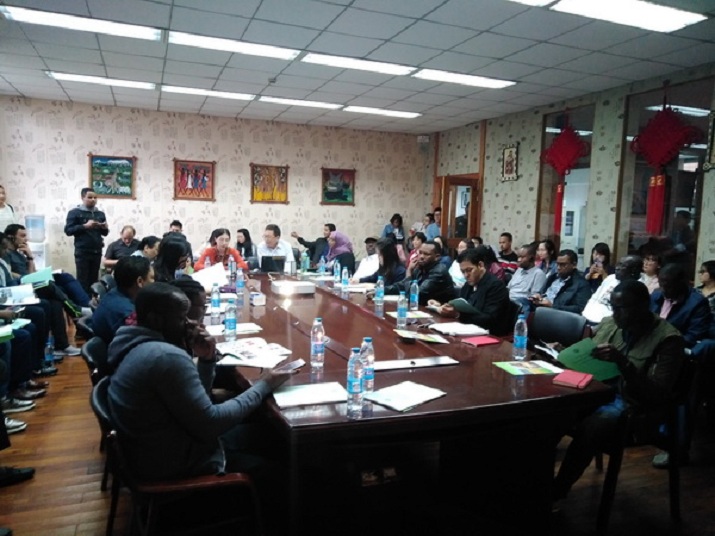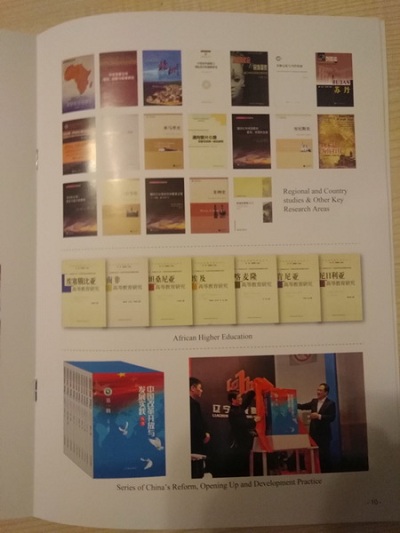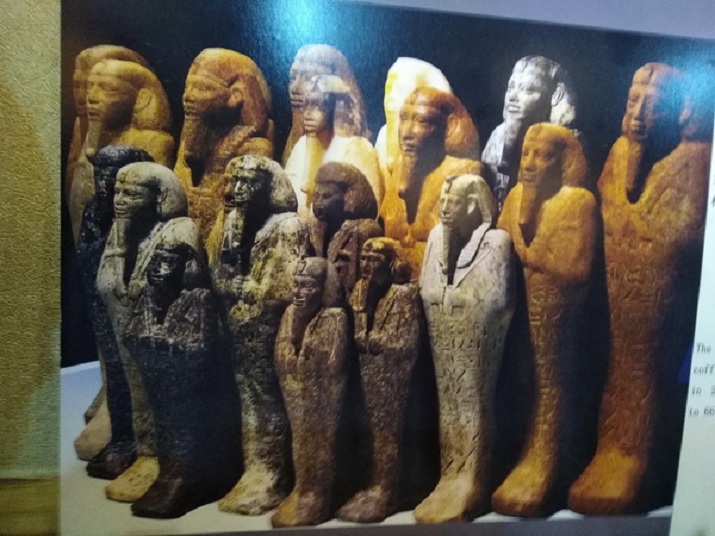|
||||||||||
| Home Nation World Business Opinion Lifestyle ChinAfrica Multimedia Columnists Documents Special Reports |
|
||||||||||
| Home Nation World Business Opinion Lifestyle ChinAfrica Multimedia Columnists Documents Special Reports |
| Africa |
| Cameroon Now Boasts over 10,000 Chinese Language Learners |
| Zhejiang Normal University, Jinhua in southeastern China’s Zhejiang Province was founded over 60 years ago. The Institute of African Studies, Zhejiang Normal University, IASZNU, was introduced in the 1990s. Zhejiang Normal University, ZNU, cooperates with over 30 African universities and some institutes |
| Edited by Li Jing ·2017-10-17 |

Dr Hodan Osman Abdi, lecturer with IASZNU, talks about a documentary film on Africans in Yiwu she produced. Photo by Kimeng Hilton
Zhejiang Normal University, Jinhua in southeastern China’s Zhejiang Province was founded over 60 years ago. The Institute of African Studies, Zhejiang Normal University, IASZNU, was introduced in the 1990s. Zhejiang Normal University, ZNU, cooperates with over 30 African universities and some institutes.
The university has established three Confucius Institutes in Africa - Cameroon, Tanzania and Mozambique. Confucius Institute Cameroon will next year celebrate its 10th anniversary, officials explained in Jinhua on October 13, 2017. Meanwhile, over 10,000 Cameroonians are learning Chinese in Yaounde, Douala and Maroua, Prof. Chen Mingkun, Deputy Director of the Institute of African Studies disclosed.

IASZNU staff brief visiting African journalists in the campus in Jinhua, Zhejiang Province. Photo by Kimeng Hilton
Pioneer Chinese language teachers
Confucius Institute Cameroon also has ties with 8 local universities and private schools where Chinese is taught. The University of Maroua in the north of the country last year became the first in West Africa to graduate high school teachers in Chinese Language Education. So far, 200 teachers have graduated from the programme whose Head of Department trained in Zhejiang Normal University. ZNU each year admits about 1,000 African students, including nearly 100 Cameroonians.
Zhejiang Normal University offered to train Cameroonian civil engineers for free so that they can return home and boost the local construction industry. However, there have some delays in receiving feedback from the University of Yaounde I that was requested to propose names. "The Director of IASZNU is eagerly looking forward to getting this cooperation project off the ground," an official said.
IASZNU think tank
Meanwhile, the Institute of African Studies, Zhejiang Normal University is also a think tank with 35 full-time staff - four professors and 14 associate professors. It runs four research facilities - the Centre for African Political and International Relations Studies, the Centre for African Economic Studies, the Centre for African Educational Studies and the Centre for African Historical and Cultural Studies.
IASZNU also manages an African Museum, the only one of its type in China. Over 10,000 people visit the museum each year to learn about African culture. The institute projects African films to students twice a month and manages two African cultural parks in a local elementary school and in Yiwu City where African drumming and other aspects of the continent’s culture are taught.
PhD students research interests
Two Cameroonian doctorate students in IASZNU, all on Chinese government scholarships, shared their research interests and possible impact on Cameroon. Abah Bidias Alain Steve is a second year PhD student in African Education and Social Development. He is a Guidance Counsellor civil servant who took study leave. His research interest is how to put in place a system of vocational and technical education that meets job market demands.
"I chose the topic after realizing that China’s fast economic development is in part the result of its education system - especially vocational education that was the focus at one point. This helped in growing many businesses, thereby enabling the economy in turn to contribute to the growth of education," Abah explained.

IASZNU has become a think tank with many publications to show. Photo by Kimeng Hilton
Linking training and job creation
He said back home in Cameroon, many young school leavers are unable to secure jobs as there is no connect between the education offered and the skills employers require. Unlike in China where data collection and analysis is well developed, thereby enabling authorities to know the number of students needed in different trades, the employment opportunities available and their requirements, five years in advance. "Training is based on employment projections, not just for training sake," Abah noted.
According to Abah, such a system ensures that skilled school leavers get jobs. The risk of training people anyhow to throw into the job market is that they will eventually create problems for society, he explained. "I think it is time Cameroonian authorities focused on fewer trades in technical and vocational education, especially those with higher chances of employment. Students do not need to study up to postgraduate level only to become jobless. Instead, they should train in more job-creating fields and trades after completing secondary and high school," Abah Bidias Alain Steve counseled.
Mounton Njoya Felix has just completed the first year of his PhD research in Comparative Education. He read a Master’s degree in Chinese Language and Culture Education in Zhejiang Normal University before returning to Cameroon to work with a Chinese company for a year. The holder of a Bachelor’s degree in Geography from the University of Yaounde I in Cameroon was encouraged by his Chinese employers to return to school for a PhD.
Comparing Cameroonian, Chinese education
Mounton is comparing the Chinese and Cameroonian systems of education, hoping to join the University of Maroua as a Chinese language lecturer in the College of Education. He says as more Chinese invest in Cameroon, the people need to understand Chinese education in order to take advantage of the employment opportunities.

African artefacts in the African Museum at the Institute of African Studies, Zhejiang Normal University in Jinhua. Photo by Kimeng Hilton
"My research interest is illiteracy. I hope it will enable the public to understand the challenges of the Cameroonian and Chinese systems of education. One of China’s strong points today is political will and the huge resources invested in education and training," Mounton Njoya Felix noted.
Kimeng Hilton Ndukong, a contributor to People’s Daily Online, is Sub-Editor for World News with Cameroon Tribune bilingual daily newspaper in Cameroon. He is currently a 2017 China-Africa Press Centre, CAPC fellow.
(People's Daily Online, October 16, 2017)
| About Us | Contact Us | Advertise with Us | Subscribe |
| Copyright Beijing Review All rights reserved 京ICP备08005356号-5 京公网安备110102005860号 |